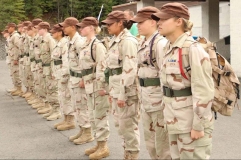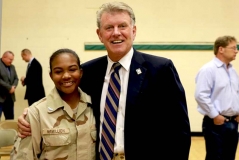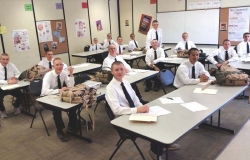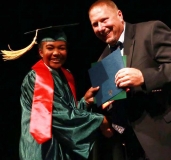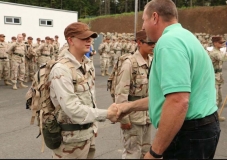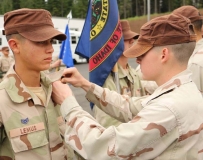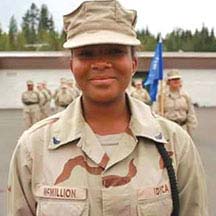No products in the cart.
At the Academy
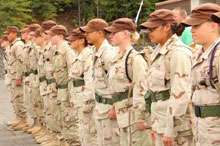
One Gate, and It’s Open
By Ahmeena McMillion
This story is offered free of charge online in its entirety for the first week of July.
On January 17, 2015, I put my life into the hands of strangers. I trusted that they would keep me safe, secure, and would help me change, to become the better person I wanted to be.
It would be a challenge for them and for me. At that point, I was telling myself that I didn’t have a care in the world—and yet at the same time, I had a really bad attitude about everything.
The place I went to is in Pierce. It’s called the Idaho Youth ChalleNGe Academy (the capital “NG” is because it’s a National Guard program), and I went there assuming that I would be able to “play the system.” I didn’t realize that I was trying to play the wrong cards, which would only make things worse and would prevent me from learning much of anything. The program is twenty-two weeks, and it took me sixteen weeks to change.
I think my problems began back when I was fourteen, living in Pennsylvania. My grandfather died, and he was my only father figure until I later reconnected with my real father. My grandpa’s death really changed me, because it made me so bitter! I was rude to everybody, I didn’t care if they were older or authority figures. I got on probation that year for fighting and stealing. I was headed to prison, but the people I stole from didn’t press charges. I hated the world, because everything was falling apart. I had just wanted my grandpa to see me graduate from high school and turn eighteen. I was angry, because I knew I’d never ever again say, “Hi, Poppy.” I knew I’d never ever again hear, “Hey, Meena, how you?” I was really depressed and it just got worse. I was put on anti-depressants, but they only seemed to make me sadder. For a while, I still had hopes that one day I’d get better. I knew it could happen, but then I got sent to juvy—locked up. And I lost hope for happiness.
Academy attendees line up for inspection. Photo courtesy of IDYCA.
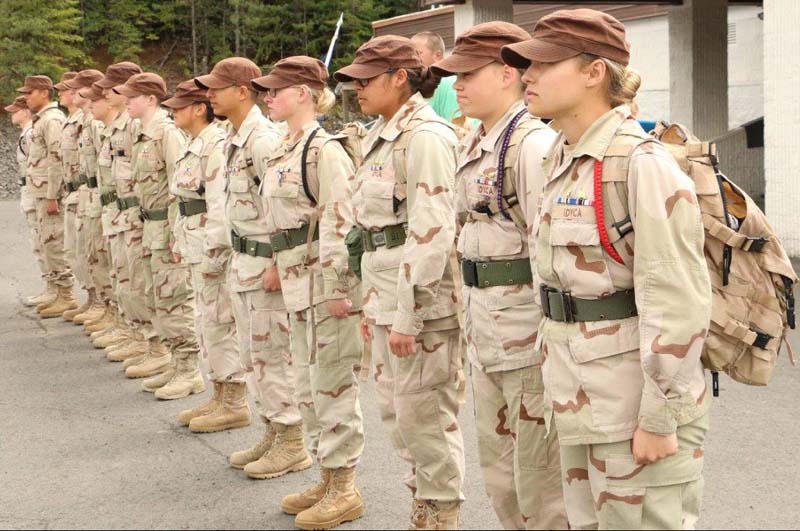
The author at the academy with Idaho Governor Butch Otter. Photo courtesy of Ahmeena McMillion.
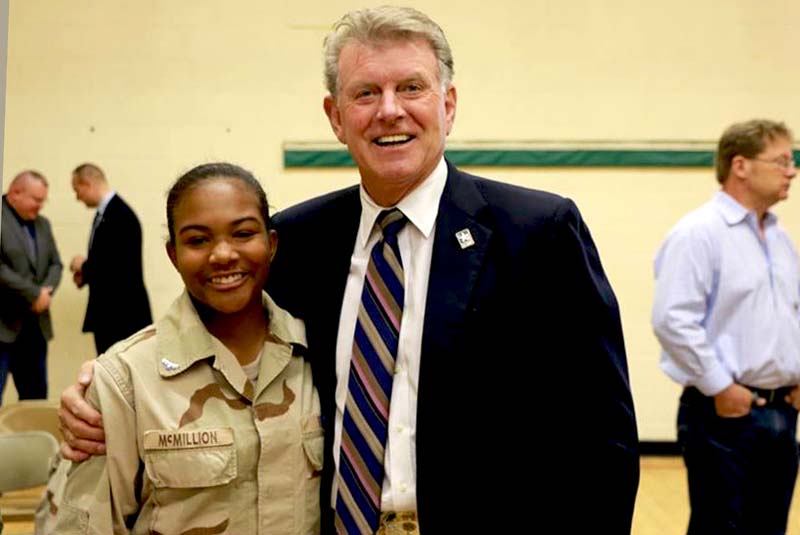
Classroom instruction is high school-accredited. Photo courtesy of IDYCA.

Ahmeena receives her diploma from academy principal Bicker Therien. Courtesy Ahmeena McMillion.
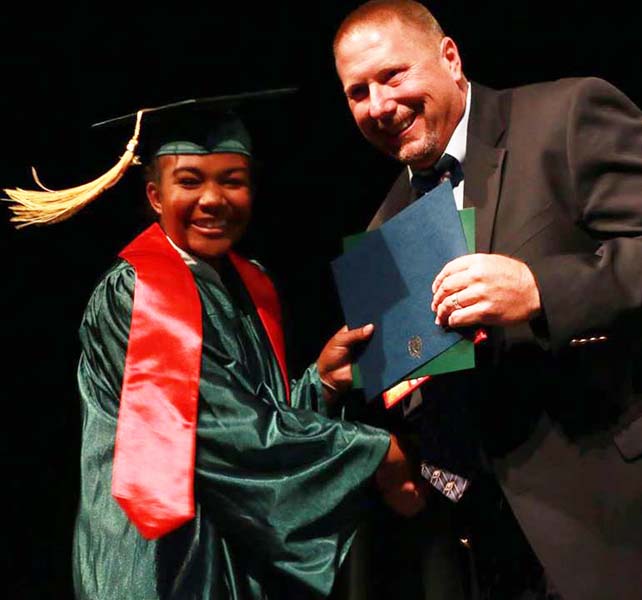
Greeting academy newcomers. Photo courtesy IDYCA.
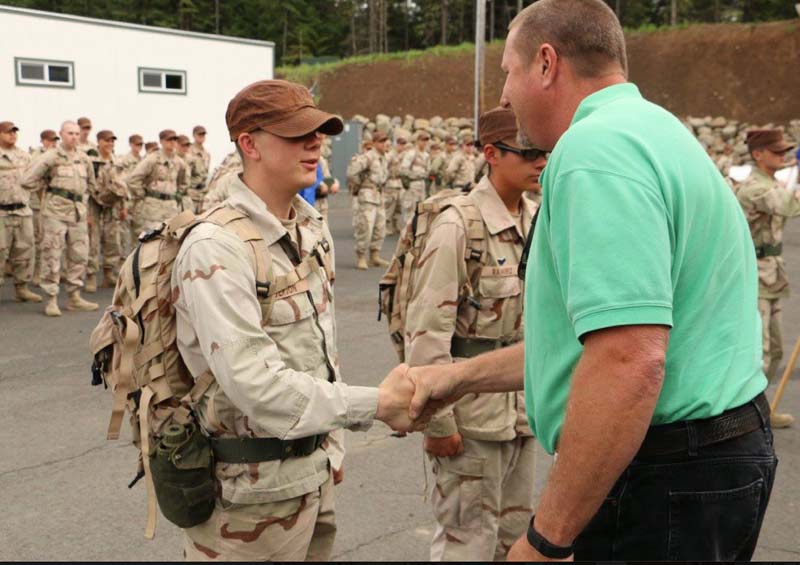
Cadets are rewarded for achievement. Photo courtesy of IDYCA.
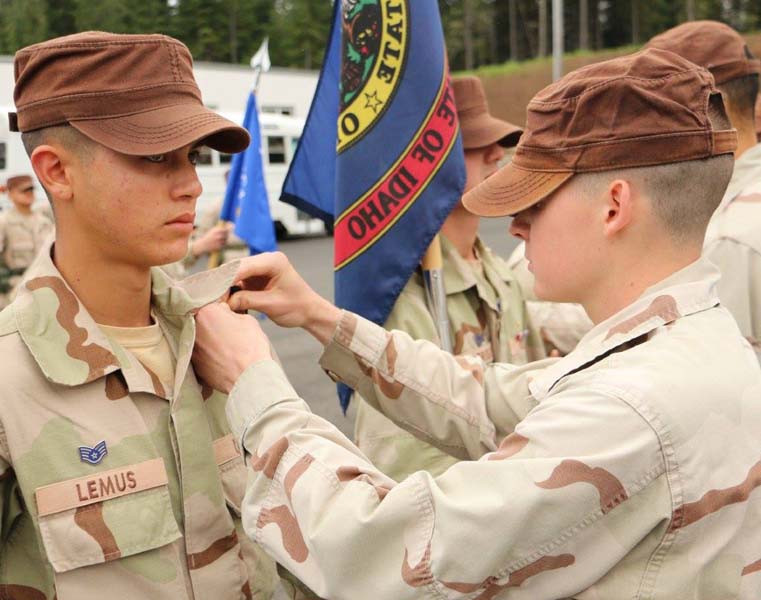
By the time I was in eleventh grade, I had only nine credits. I was on probation then, living in Idaho with my dad. I wanted to go to an alternative school in Caldwell but was told there was no way I’d graduate with my class of 2016. “You’re going to graduate when you’re twenty-two,” they told me. I lost hope and said forget about it. But I had dreams of becoming a registered nurse or teacher, and didn’t want to put those dreams on hold. I felt I had to do something, yet for a while I couldn’t, because I was still suffering from severe depression.
It got so bad that it made me want to kill myself. My dad put me in a mental hospital, where I started getting happier being with other females and staff who cared. One day, I said to myself, “Ahmeena, you need some type of boot camp. Your attitude is crazy, you need to go get help.” That night, I called my dad and told him what I was thinking.
“I’m glad you see that you need help,” he said. “I’ll talk to your probation officer.”
My probation officer told my dad about the Idaho Youth ChalleNGe Academy. It’s a volunteer program for people sixteen to eighteen years old who are at risk of dropping out of high school or who already have done so. My father and I went to the last orientation for the class I was to attend, but we got everything done on time, because we had cadre team leader Mario Pile to help us.
The main requirement for getting into the academy is you have to be willing. If people see that you don’t want to go, and they sense that your parents are making you go, they won’t accept you. Before I got accepted, I wasn’t trying to “play” the program, I simply wanted to better myself. The former deputy told the principal that I should get enrolled, and they put me on top of the list. The purpose of the program is no less than to change an individual’s life, but once January 18, 2015 came, I realized that I was going to try to play the system, because it was too hard for me personally. I didn’t think I would change at all. I wasn’t used to tough situations and didn’t have it bad growing up. For the most part I was used to everything being pretty easy, even though life did get hard for me. Now the academy was offering me a second chance, but I didn’t expect to graduate a different person. I figured I would just find my way around the ropes, get out of there with a certificate, and still be the same jacked-up person.
On January 17, my dad, my brothers, and I all got in the car and headed to Pierce. I was nervous yet happy. My dad had told me, “You’re not going to make it far in this program if you don’t lose that attitude,” which motivated me. At that moment, I just knew I was going to become a better person at the academy. When we got there and I saw the place, I couldn’t believe it. This wasn’t like juvy! I thought I’d see barbed wire and a bunch of guards at the gates, but there was only one gate, and it was open.
But when we walked through the front doors and I heard how the adults there talked to me, I immediately knew I wasn’t having that. They made us read a boring rules and regulations book about the academy. It was so boring, I just wanted to go home. Everybody else was crying, because they weren’t going to see their families for a while. I was just trying to be strong, not wanting to show my weakness and get yelled at or something. We slept in designated barracks with bunkmates. We had to wear PT (physical training) warmers to bed, which were simply a T-shirt and shorts. Our first meal was gross—grilled cheese and tomato soup. We went to sleep at 9 p.m. (they called it 2100 hours), and as I lay in my bunk, all I could hear was a bunch of girls weeping loudly.
For the first two weeks, we weren’t allowed to talk, because they said they wanted us to acclimate to the program. Once we were allowed to talk, I got along with a few people. Boys and girls were never allowed to talk to each other, because we were there to better ourselves, not make new relationships. Even so, I did make long-lasting friends with a few guys from the academy, who are all considered part of my family now. I think that’s because I was one of the funny ones of the bunch. Despite that, though, I had a bad attitude, because I just didn’t care. Everybody at the academy had days where they wanted to give up, but it never seemed to me like any of the other Mountain Gems (which was the name of my flight) were intentionally playing the system. I think everybody else besides me was handling it pretty well.
TSgt. Ken Pratt knew I was the troubled kid from my bay (barracks), and he really influenced me by giving me a challeNGe, which was to do something kind by the end of the week. I didn’t think I had it in me, but he told me if I didn’t do it, I’d have to do fifty sets of an exercise of his choice, so I accepted the challeNGe. The kind act I did came out of nowhere. I overheard one of the staff talking about how his friend had just lost his wife to cancer and he was going to the funeral. I told Valle, my battle buddy (a partner each of us was told to choose), and we both sat through our next classes writing a letter to this man. Neither of us knew him, but we felt really bad for him. That is one thing I will never forget, and I have TSgt. Pratt to thank for it. After that week, I continued to do something kind every week. And I decided to change my thinking about the program.
Around that time, another important thing happened. I was being really disrespectful one day with a counselor named Trevor Sparrow, who put me in push-up position. I laughed at him, telling him to call my dad because I was leaving.
“I can’t do that, Cadet McMillion,” he said. “We can’t just call your dad. You have to fill out the papers.”
I started crying, and then we sat down and talked about why I wasn’t doing my PT or listening in class. After that, I realized that with the way I was acting, I wasn’t going to graduate. I started doing my PT a little bit better. And eventually my CWAF (Cadet Weekly Assessment Form) went from 58 percent to 99 percent.
I want to let everybody know that the people who work at the academy are not administrators, they are cadre. When I hear the word administrator, I think, “They’re the people who discipline people.” Our actions had consequences, but it wasn’t discipline. The only administrator we had was the principal. The cadre were caring, loving, and really supportive. They talked to us like we were family, even though we all came from different backgrounds. They just saw individuals who were going somewhere in life. The teachers were really smart. I learned so much in such a little period of time. The last time I saw As and Bs was on my third-grade report card, but at the academy, I loved knowing that I was learning something and was actually getting graded on the knowledge I presented. The high school I went to didn’t care if we showed up to class, and pretty much everybody passed. But the teachers at the academy graded everything, from our behavior to the knowledge we presented. In addition to Mr. Pile, TSgt. Pratt, and Mr. Sparrow, I connected really well with Principal Bicker Therien, Holly Spencer, TSgt. Mundlin, Sarah Nelson, MSgt. A.J. Edwards, and MSgt. Guy Bonner. They all gave me memorable pieces of advice.
I talked every night with TSgt. Pratt and TSgt. Mundlin about what I would to do to be better and how I was going to graduate. They both inspired me and changed my thinking, especially when I considered quitting because I had had enough and it was too hard.
My biggest accomplishment at the academy was getting my GED. I passed the test on the first try. Because of the route I had been heading down, I never thought I’d finish high school or even get my GED. But I did it!
When I think back now about the IDYCA, the phrase that comes to mind is “life-changing.” The people there showed that they cared about me—or I should say, they cared about all ninety-two of us. The support I got from them warmed my heart, which made me decide to give the program a shot. I started to do the right things, because I honestly didn’t want to go home early. I wanted to make my family proud of me, and I accomplished that as well. The academy taught me so much in such a small period of time that I will keep it with me for the rest of my life.
I came out of there a different person on so many levels. I was happier and a lot more respectful, although that doesn’t mean I didn’t have my ups and downs while I continued to adapt to life at home. A month after I left the academy, I got my first job, because I had a better attitude and people were willing to give me a shot. Sometimes, I still find myself saying, “Yes, TSgt.,” to my dad or stepmom.
I have made many mistakes in my life. I don’t regret them, though, because at the end of the day, the mistakes were part of what made me who I am. It’s pointless to wish that I could right my wrongs. It’s better to love who I am today, because I am better than I was yesterday.
Throughout my five-and-a-half months at the academy, one quote stuck with me: “Change is the essence of life. Be willing to surrender what you are for what you could become.”
This content is available for purchase. Please select from available options.
Register & Purchase Purchase Only
Register & Purchase Purchase Only

